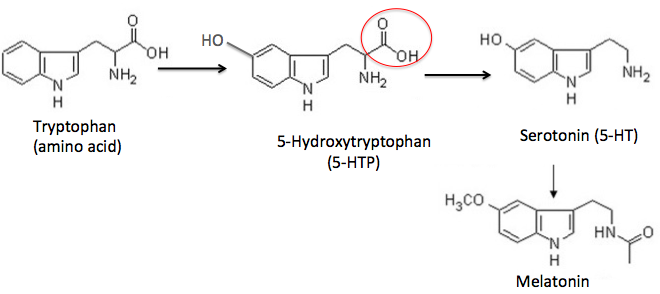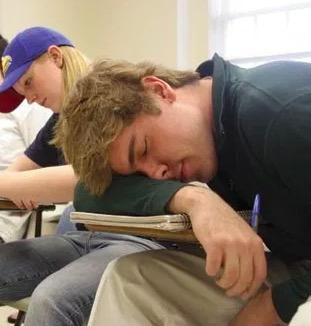We at ACSH frequently discuss "natural nonsense" - the idea that a drug or chemical is inherently better/safer (or worse/more toxic) because it just happens to be biosynthesized by a living organism, usually a plant (1). This is a patently ridiculous concept, yet that didn't stop WebMD (aka WebDUMB - a site that I have frequently criticized for inaccuracy) from doing just this in its recent article/slideshow "Natural Sleep Aids & Supplements." They really crossed the line this time - even before they got to the second sentence...
Alternatives to Medication
If you’re among the nearly half of Americans who sometimes have trouble with sleep, you may be interested in how to slide into slumber without drugs.
Oh, dear. Please don't tell me that WebDUMB doesn't know the definition of a drug. Please.
The FDA certainly does (emphasis mine):
"A drug is defined as: A substance recognized by an official pharmacopoeia or formulary. A substance intended for use in the diagnosis, cure, mitigation, treatment, or prevention of disease. A substance (other than food) intended to affect the structure or any function of the body."
Source: Drugs@FDA Glossary of Terms
Anyone see the problem here? By definition, anything that makes you "slide into slumber" is automatically a drug, since it treats and mitigates insomnia, and affects the function of the brain. WebDUMB is wrong right out of the gate. Nonetheless, we might as well take a look at some of the 15 "non-drug drugs" they write about.
1. Kava
"Research suggests kava is also useful for sleep. It may ease insomnia caused by stress. But kava supplements have been linked to a risk of serious liver damage... It’s thought that supplements made from only the root, not the stem or leaves, may be safer."
Well, that's comforting. It may be useful for sleep and it may cause liver damage. And the roots may be safer than the leaves. Did Joe Mercola write this?? And please tell me why I should take something with all these "mays" when an Ambien will do the job nicely and not cause liver damage. And the pills at the top of the bottle are just as safe as those at the bottom.
2. CBD oil
Although little is known about the pharmacology of CBD, the number of claims about this hemp-derived product is astounding. One of them, according to the article, is that it will make you sleepy. But...
"CBD may make some people tired or want to throw up. Experts are still looking at how much is needed, but research suggests a dose of 25-175 milligrams a day."
Brilliant. Take something (a mixture of chemicals) that will make you puke or sleep (or maybe puke while you sleep?) at a dose that is unknown. This is a "drug-free" sleep alternative?
3. 5-HTP (5-hydroxytryptophan)
5-Hydroxytryptophan (5-HTP) - a precursor to the endogenous sleep regulator melatonin - is biosynthesized from the amino acid tryptophan. 5-HTP is then converted into serotonin, which undergoes two distinct biochemical reactions to produce the melatonin. Here's the chemistry:

So it makes sense that 5-HTP might be useful as a sleep aid - if it gets from the stomach into the blood and then undergoes one chemical step (decarboxylation, red circle) to form serotonin) followed by two more (methylation and acetylation) to form melatonin. Of course, perhaps one should just take the melatonin since you can buy bottles of it in any supermarket or drug store. Why use 5-HTP instead of melatonin? Who knows? Maybe it doesn't make any sense.
DUH?
Neither does the following:
" Some studies suggest, but don’t prove, that 5-HTP supplements made from plant seeds may help you log more sleep."
No! WebDUMB can't be telling us that the 5-HTP derived from a plant is going to behave any differently than 5-HTP derived from anything else. Anyone who has ever taken a chemistry course should know this is false. Has anyone over there ever taken a chemistry course?
"Experts recommend 100-300 milligrams of 5-HTP before bedtime. Side effects include nausea and headaches."
So, if I've got this right, WebDUMB is suggesting a supplement that might work - if your body converts it to something that else that you can just buy - based on some studies that suggest (but don’t prove) that it might work, but only if you use the 5-HTP from seeds. But it might make you hurl or give you a headache, either of which might keep you awake.
Aside from everything, they got everything right.
4. Magnolia Bark
"Chinese medicine uses this to treat anxiety and depression. Experts are studying whether magnolia bark might work on sleep, too. It has a compound called honokiol, which may improve your slumber."
I don't even know where to start. The old "Chinese medicine" adage, which suggests that because something was used in China a bazillion years ago it is somehow superior to something discovered a bazillion years later. The Chinese used to use mercury as a laxative. Anyone wanna try that? Honokiol may improve "your slumber" but it is being studied as a cancer chemotherapy drug, which I find mildly disconcerting.
And there's this:

The chemical structures of honokiol, BPA, and DES. Similar? Maybe.
The essence of the "endocrine disruptor game," (2) which has been perfected by scientifically bereft groups like EWG and NRDC as well as a whole bunch of academics, is that we are being poisoned by chemicals that are all working together to screw up the relationship between our hormones and their receptors - something that has been blamed for obesity, cancer, infertility, and the crappy finale of Game of Thrones. Part of the game is pointing out a similarity - real or imagined - in the chemical structures of alleged "disruptors" (such as BPA) to real ones (diethylstilbesterol). Is honokiol an endocrine disruptor based on its structure? Damned if I know.
Finally, there's this gem...
Magnolia bark also may keep your body from releasing the stress hormone adrenaline. It appears safe for short-term use, but it sometimes can give you heartburn."
As usual, WebDUMB is barking up the wrong tree.
Or they took a real sleep aid.
During chemistry class.
NOTES:
(1) Plants produce plenty of toxic chemicals to defend themselves. See Dr. Alex Berezow: 99.99% Of Pesticides We Eat Are Produced By Plants Themselves
(2) One of the chemical scare tactics commonly used is calling Chemical X (one that is being demonized for some reason or other) an endocrine disruptor. Bisphenol A (BPA) - a component of many plastics - is the poster child of endocrine disruptors. Yawn.




